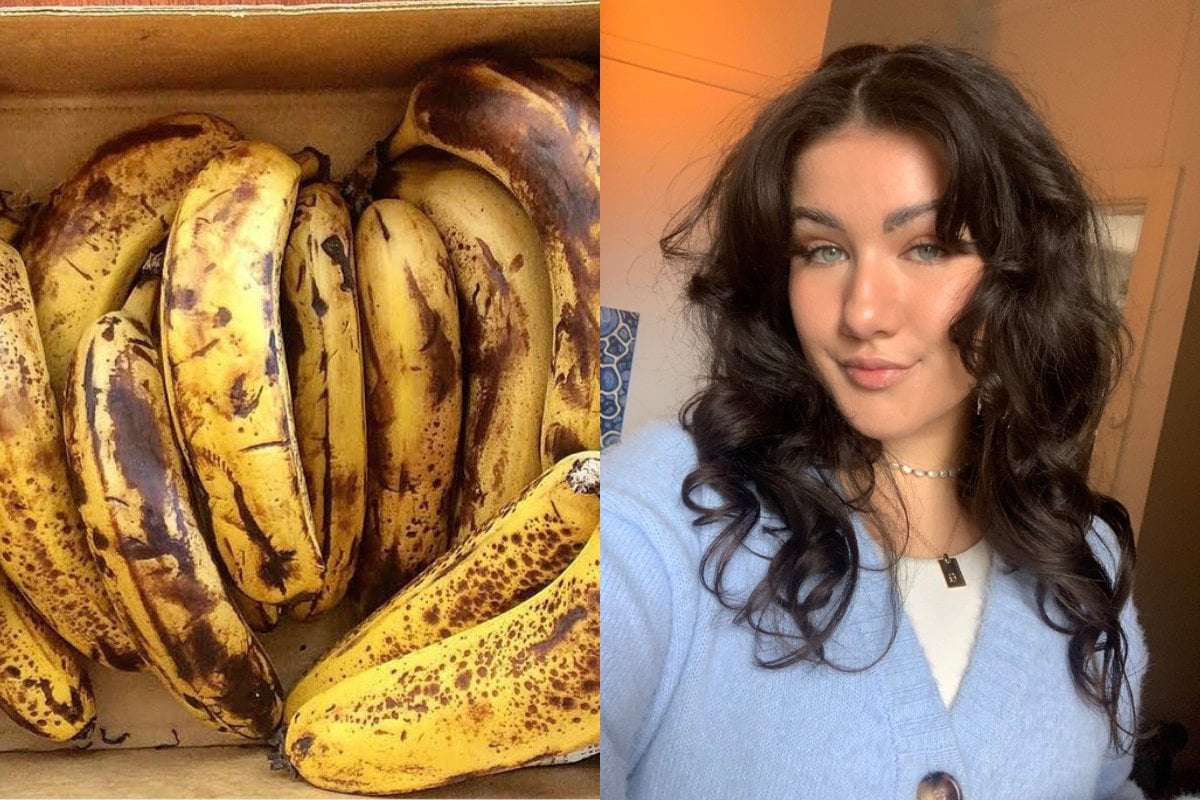
This article deals with the topic of disordered eating.
Shivering from the winter air and lack of fat on my activewear-clad body, I tiptoed into the covered outdoor room (the only soundproof area) at my parent's house.
It was 6.30am. My knees hit the cold, stone tiles as I plugged in my blender.
It was my most prized possession, purchased with the first $700 I'd earned as a 16-year-old waitress. My friends spent their money on makeup, clothes and video games. But for me, the blender was worth every penny. And on this occasion, it was filled to the brim with one key ingredient: frozen bananas.
I looked nervously over my shoulder as I crushed the fruit into a creamy, frothy concoction, hoping I hadn’t woken my family. I poured it into a one-litre mason jar and stored it in my schoolbag, my parents none the wiser that it would be my lunch.
This was in 2016 and the vegan movement was in full force — vegan YouTubers and Instagram influencers dominated my social feeds and the decision to follow a plant-based diet — one touted as an ethical pathway based on my passion as an animal rights activist — quickly became an unhealthy obsession.
Soon, I was eating up to 20 bananas a day and became terrified of consuming fats and oils, thanks to the advice of strangers on the internet promoting a high carb, low fat, raw vegan diet.
I was so obsessed, I once cried when my mum used oil to make me dinner.
.jpg?alt=media&token=da636aa9-af9e-4fee-9a59-8626f7c3dedb) Image: Supplied.
Image: Supplied.Now, nearly 10 years later, I regularly eat a variety of meat, seafood, dairy and eggs.
And looking at some of the same vegan influencers I idolised in my adolescence, I can see that meat is also back on the menu for them.
So what was it that had so many of us in a chokehold?


.jpg?alt=media&token=64cd7758-f36d-44c4-af10-9ae5aaa0f10d)
Top Comments